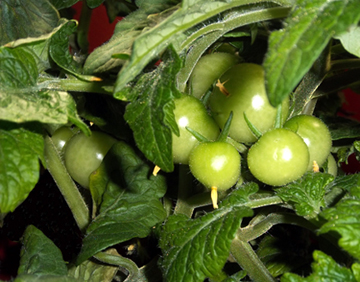Between 30-40 per cent of deaths from studies in intensive care units from different countries are people with diabetes, said Paul Zimmet, Professor of Diabetes, Monash University, Australia.
Zimmet, who is President International Diabetes Federation, added that the actual mechanism as to why COVID-19 may cause diabetes is as yet unknown, however, several possibilities exist. "COVID-19 is a very destructive and cunning virus and causes terrible damage to tissues including the lungs and pancreas," said Zimmet. Below are excerpts from an exclusive chat with IANS.
Why do you say Diabetes is dynamite if a person has been infected with COVID-19?
There have been many deaths in many countries, e.g. Italy, China, the UK and US among people with diabetes after infection with COVID-19 (SARS-Cov-2).
The mortality tends to be mainly in older Type 2 diabetics. Between 30-40 per cent of deaths from studies in intensive care units from different countries are people with diabetes. This outcome and other complications from the virus, particularly pneumonia, are more likely in people with diabetes which is poorly controlled with high blood sugars (poor metabolic control).
Diabetes is often associated with other chronic conditions, including obesity, hypertension and heart disease compounding the risk. These latter conditions all convey higher risk to COVID-19 infections.
ACE-2, which binds to SARS-Cov-2 and allows the virus to enter human cells is also located in organs and tissues involved in glucose metabolism. Is there solid evidence that virus after entering tissues may cause multiple and complex impairment of glucose metabolism?
The actual mechanism as to why COVID-19 may cause diabetes is as yet unknown.
However, several possibilities exist. Firstly, COVID-19 is a very destructive and cunning virus and causes terrible damage to tissues, including the lungs and pancreas.
A new study just published showed that in miniature lab-grown pancreas, and other cells such as liver, made using human stem cells, COVID-19 caused destruction of the pancreas beta cells that produce insulin.
It is possible that the virus causes disruption of the cells by disrupting cellular metabolism. This is possibly the way it brings about new-onset diabetes. ACE-2 exists in high concentration in the lung as this also explains the terrible lung side effects of COVID-19 infections.
Can COVID-19 lead to a new mechanism of diabetes? Probably a new form of diabetes or a new form of disease?
The COVID-19 virus has only been with us for about 5 months and there is a huge amount that we still must learn about its cunning and devastating ways. The purpose of the Global COVIDIAB Diabetes Registry, a joint initiative of Monash University in Australia, and King’s College London is to gain a much better understanding of how common is the appearance of COVID-19 related diabetes, what form does it take be it type 1 or type 2 or a new form, and how common are the complications that we already know e.g. diabetic keto-acidosis, hyperosmolar coma and high insulin requirements are causing high rates of ill health and mortality worldwide. The knowledge gained will aid our understanding for developing strategies to prevent and treat this terrible virus that has caused destruction globally.
Diabetes is one of the most prevalent chronic diseases in India. According to a recent study, sugar levels of diabetic persons increased by 20 per cent during nationwide lockdown in India to contain COVID-19 outbreak. Even after lockdown was lifted, many people are confined within their home. Do you think lack of physical activity will create more problems for diabetics?
My own major research has been on studying populations with high rates of diabetes, including ethnic Indian communities including India, Mauritius, and Fiji so I am very well aware of this. It is now well established that along with diabetes, that associated poor metabolic control of their diabetes places these people at the highest risk for COVID infection and its devastating complications and the associated morbidity and mortality. And these communities have high prevalence of heart disease as well.
Lockdown not only has deleterious effects on metabolic control of the diabetes through reduced opportunities for exercise to be protective serious consequences of SARS-CoV-2 infection, lockdown usually results in disruption of the regular medical care and the regular monitoring of metabolic control. This may also be partly due to the stress and poor compliance, or inability to afford their medications such as insulin. It may also be compounded by inability to access the care during the pandemic. Nevertheless, we now know that poor metabolic control heightens their risk as described above.
You have said diabetes is itself a pandemic just like Covid-19, and the two pandemics could be clashing. How could governments address this problem?
These are “The Times of COVID-19”. Most nations of the world were totally unprepared for a pandemic of this magnitude. They underestimated its potential impact and the destructive nature of the viral infection. This should prompt all countries to upgrade their guidelines to take into account the lessons learnt on infection control including training of staff specialising in infectious diseases and improved public education and taking their communities into their confidence about the terrible nature of COVID-19. The risks of COVID-19 infection need a much higher priority in the general community, particularly for people with chronic conditions such as diabetes, obesity, and cardiac conditions.
Governments are faced with chronic diseases (NCDs) like diabetes and communicable diseases (CDs) like viral and enteric diseases and TB. In general WHO gives the highest priority to communicable diseases and much less attention and funding to chronic diseases like diabetes (I was an adviser to WHO for many years (about 30) on diabetes and obesity and it was very frustrating to deal with this situation).
This attitude to diabetes, for example, has a flow down effect so that diabetes funding in countries by governments, rich and poor, suffered and was insufficient.
So now we have a COVID-19 pandemic and who are those at highest risk, yes people with diabetes and other NCDs, it is very important that now the two, Diabetes and COVID-19 are clashing face-to-face. This is a major issue that WHO and national governments have to face with equal priority’
Stressed people suffering from diabetes run a greater risk of poor blood glucose levels, what do you suggest to these people?
As mentioned in the answer above, stress is an important factor in upsetting the blood sugar (metabolic) control of diabetes. Additive to this is poor compliance with medications and diet. These and potential associated comorbidities due to other chronic conditions are part of the dynamic dynamite mixture.
 Washington, Apr 10: Want to grow bigger, stronger muscles like Arnold Schwarzenegger? Eat green tomatoes!
Washington, Apr 10: Want to grow bigger, stronger muscles like Arnold Schwarzenegger? Eat green tomatoes! In a new study, Adams searched for a small molecule compound that might be used to treat muscle atrophy.
In a new study, Adams searched for a small molecule compound that might be used to treat muscle atrophy.





Comments
Add new comment